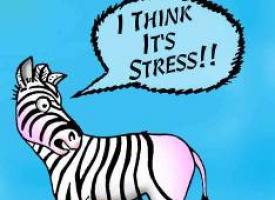The Effects of Modern Day Stress and What You Can Do About It

Welcome to our first Blog. We will be blogging weekly and are very excited about this. The first blog is the first of a series on:
“The Effects of Modern Day Stress and What You Can Do About It.”
As we all know, modern day life is full of demands, pressures, hassles, deadlines and frustrations. It is important to know:
-
In small doses, stress can help you to perform under pressure and it can also make you do your best.
-
If you are often running in stress mode though, your mind, body and life, will pay the price.
One way you can take care of yourself is by:
-
Recognising the signs and symptoms of stress.
-
Take steps to reduce its harmful consequences.
-
Developing greater resilience to stress.
It is important to know that stress is a normal physical response, to events that make you feel threatened in some way. When we sense danger (real or imagined), a rapid automatic process called the “fight, flight or freeze” reaction kicks in. We call this the stress response. This stress response is the body’s way of protecting you.
How do you respond to Stress?
It is important that you learn how to recognize when you are stressed and how stressed you are. The dangerous thing about stress is that it can creep up on you and you can even get used to it. Sometimes it may become familiar and almost normal. You mightn’t notice the effect it is having on you and your life.
The signs and symptoms of stress can affect the mind, the body, your behavior and your relationships at home and work. Everyone experiences stress differently and stress doesn’t always look stressful. You may:
-
Get angry or “fight,”
-
Withdraw or “flight”
-
“Freeze” under pressure.
Under all of these is a great deal of agitation.
Start to notice how you respond to stress and what are your signs and symptoms of stress overload. Next time you are facing a stressful situation, become aware of:
-
The natural stress response in the body. What does it feel like and where are you feeling it?
-
Do you have the urge to or did you fight, flight or freeze?
-
What was you behavior or coping strategy? Did you blame, cry or eat etc.?
-
Was this coping strategy effective? Did you feel better in the long term?




